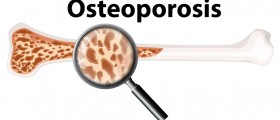
Calcium is one of many minerals essential for the human body. This is actually a key nutrient of all bones and teeth. Apart from that, calcium plays several roles when it comes to other organs such as the heart, muscles and nerves. The mineral is additionally important for elimination of waste products as well as the process of shedding hair, growth of nails and normal functioning of the skin in general.
Without sufficient intake of calcium, which must take place on daily bases, one may end up with calcium deficit and all the accompanying health issues. One of the most serious conditions associated with calcium deficit is osteoporosis. It predominantly affects older people (most commonly women) and is blamed for fractures of many bones.
Even though the mineral is important for people of all ages, calcium is especially vital for children during the development of their musculoskeletal system.
In order to maintain optimal levels of calcium in the body, one is due to obtain enough calcium from a diet i.e. consume enough foods rich in the mineral, consume foods that provide with maximum absorption of the mineral from the gastrointestinal tract and prevent loss of calcium. Diet and the Optimal Amount of Calcium
Pediatrician take into consideration many factors and decide what is the optimal amount of calcium that needs to be present in the child's diet.
As for adult people there are specific recommendations. People between the age of 25 and 50, including premenopausal women, require 1,000 milligrams of calcium every day. Such individuals are also due to have optimal intake of vitamin D (400 i.u. per day). People older than 50 years of age, including postmenopausal women, need more calcium i.e. 1,500 milligrams per day. Vitamin D requirements for this group of people ranges between 400 and 800 i.u. Calcium Rich Foods
Calcium is abundantly found in milk and a variety of dairy products. Furthermore, the mineral is present in dark green leafy vegetables, beans and peas, some types of fish as well as certain fruits like oranges and almonds.
Even though the previously mentioned foods contain sufficient amount of calcium it may not be possible for all the calcium to be absorbed from the gastrointestinal tract. There are certain foods as well as substances that may interfere in calcium absorption and cause negative effects due to inadequate calcium absorption.In order to avoid undesirable side effects due to inadequate calcium absorption, patients who take some medications are due to be fully informed regarding the food such drugs are not supposed to be taken with. Also, individuals should never opt for calcium supplements prior consulting their physician who will perform certain tests and exams determining whether the person actually needs calcium supplements and what supplements would be the most convenient.

















Your thoughts on this
Loading...